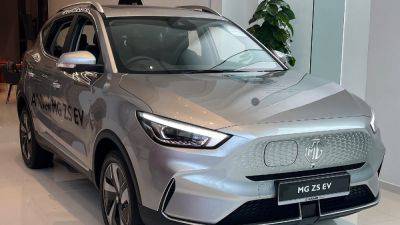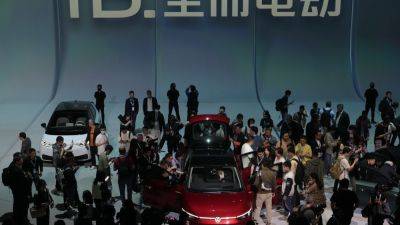What to know about Europe’s tariffs on Chinese electric vehicles
FRANKFURT, Germany (AP) — The European Union has finalized its sharply higher customs duties on electric vehicles imported from China. EVs are the latest flash point in a broader trade dispute over Chinese government subsidies and Beijing’s burgeoning exports of green technology to the 27-nation bloc.
The duties took effect provisionally in July and were finalized after talks between the EU and China failed to resolve their differences. Negotiations are expected to continue, and the EU could lift the duties if an agreement is reached.
Here are some basic facts about the EU’s customs duties:
What did the European Union do?
The European Commission, the EU’s executive arm, conducted an eight-month investigation and concluded that companies making electric cars in China benefit from massive government help that enables them to undercut rivals in the EU on price, take a large market share and threaten European jobs.
The duties differ depending on the maker: 17% for BYD, 18.8% for Geely and 35.3% for state-owned SAIC. Other EV manufacturers in China, including Volkswagen and BMW, would be subject to a 20.7% duty. The commission has an individually calculated rate for Tesla of 7.8%.
“By adopting these proportionate and targeted measures after a rigorous investigation, we’re standing up for fair market practices and for the European industrial base,” European Commission Executive Vice-President Valdis Dombrovskis said.
The duties will stay in force for five years unless an amicable solution is found.
Why did the commission take action?
Chinese-built electric cars jumped from 3.9% of the EV market in 2020 to 25% by September 2023, the commission has said.
The commission says companies in China accomplished that with the help of







